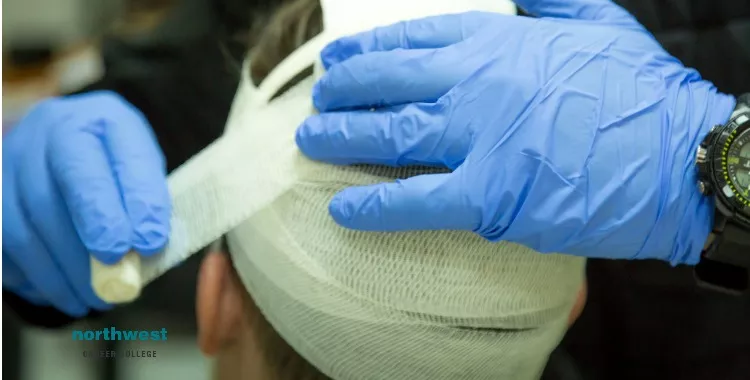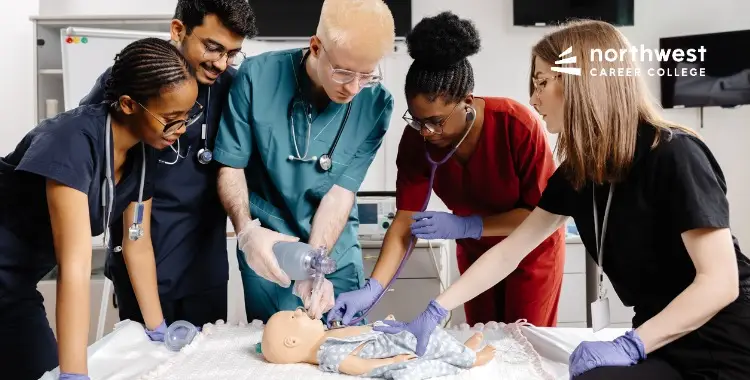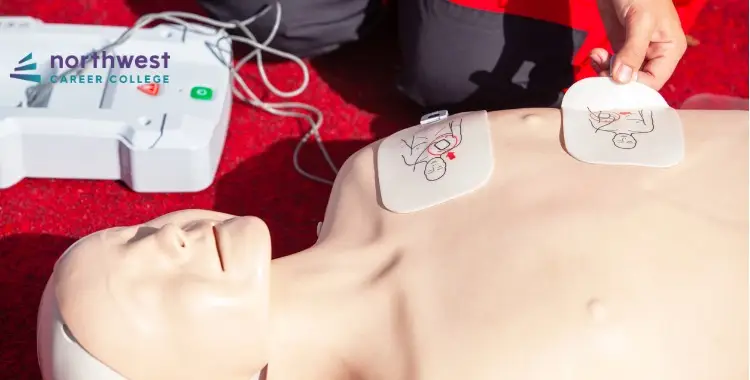How To Deal With A Head Injury As Part Of CPR?
- CPR
- March 11, 2024
- 3.7k views
- 4 min read

One of the symptoms of sudden cardiac arrest is a rapid loss of consciousness. In the wrong circumstances, this sudden loss of motor control can lead to a fall and a potentially serious head injury.
As a CPR provider, you might find yourself in the unenviable position of having to provide both CPR and dealing with a head injury at the same. Thankfully, Saint John’s Ambulance has some tips on how to deal with the situation effectively.
Table of Contents
What Are the Symptoms of a Minor Head Injury?
The common symptoms of a minor head injury are:
- Any Loss of Responsiveness
- Scalp Wound
- Dizziness or Feeling Sick
- Loss of Memory of Events Before or During the Injury
- Headache
- Confusion
How to Treat a Minor Head Wound?
If they are responsive, sit the casualty down and hold something cold against the injury to help reduce the swelling, like an ice pack or a frozen bag of vegetables wrapped in a tea towel.
While you do this, try and assess the casualty’s level of response using the AVPU scale:
- A – Are they alert? Are their eyes open?
- V – Can they respond to you if you talk to them? Can they answer simple questions?
- P – Does the casualty respond to pain? If you pinch their ear lobe, do they move or open their eyes?
- U – Are they unresponsive to all the above? If they are unresponsive or you are worried, call 999 or 112 for emergency help.
If they have any wounds, treat them by applying direct pressure to the wound. Secure with a dressing if needed.
Keep monitoring their level of response.
If they are alert and responsive and have always been so, their head injury is probably mild. You or another responsible adult should wait with them until they recover.
If they’re not alert or responsive or they appear to be confused, their head injury could be more serious. Call 911 for emergency help and explain the cause of the injury and give them details of the casualty’s response to the AVPU scale.
If they become unresponsive at any point, open their airway, check their breathing and prepare to treat someone who’s become unresponsive.
If their injury has been caused by a sporting incident, make sure they do not return to the sport until they have been fully assessed by a medical practitioner.

Advise the casualty to seek medical help if the head injury appears to get worse or if any of the following apply:
- they are over the age of 65
- they had previous brain surgery
- they are taking anti-clotting medication
- they have been taking drugs or drinking alcohol
- there is no one responsible to look after them.
What Are the Symptoms of a Major Head Injury?
If someone has had a serious head injury, they may have:
- Experienced a Severe Blow to the Head
- Increased Drowsiness
- Persistent Headache
- Dizziness and Confusion
- Loss of Balance or Memory
- Difficulty Speaking or Walking
- Vomiting Episodes
- Double Vision
- Seizure
- Deteriorating Level of Response
- Unresponsive
- Blood or Blood-Stained Watery Fluid Coming from the Ear or Nose
- Unequal Pupil Size.
How to Treat a Major Head Wound?
If you think someone has a serious head injury, call 911 for emergency help and tell ambulance control that you suspect a serious head injury.
While waiting for help to arrive, ensure their airway is open and clear, keep checking their breathing, and prepare to start CPR if necessary.
Try not to move the casualty from the position you found them in as they may have a spinal injury. Only move them if they are in danger. Continue to monitor the casualty, watching for any changes in the level of response.
Learn To Save Lives Yourself
Here at Northwest Career College, we are committed to providing affordable, quality CPR Classes to the Las Vegas community. We pride ourselves on being an American Heart Association (AHA) testing center and we offer Las Vegas CPR classes designed to fit your personal needs and professional schedule.
As part of our “student-focussed” approach to education we also off our CPR classes free of charge to all of our students. Call us today at (702) 403-1592 to book your CPR class and become qualified to save a life in just four hours!



